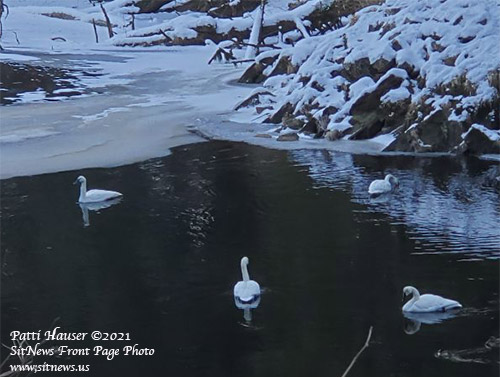













 Contact Contact 
 Webmail
Letters Webmail
Letters
 News Tips News Tips
 Copyright Info Copyright Info
 Archives Archives
Quick News
Search
 Alaska Alaska
 Ketchikan Ketchikan
 SE Alaska SE Alaska
Columns
- Articles
 Dave Kiffer Dave Kiffer
 Money Matters Money Matters
Historical
Ketchikan
 June Allen June Allen
 Dave
Kiffer Dave
Kiffer
 Louise
B. Harrington Louise
B. Harrington
Sports
 Ketchikan Links Ketchikan Links
Public Records
 FAA Accident Reports FAA Accident Reports
 NTSB
Accident Reports NTSB
Accident Reports
 Court Calendar Court Calendar
 Recent Filings & Case Dispositions Recent Filings & Case Dispositions
 Court Records Search Court Records Search
 Sex Offender Reg. Sex Offender Reg.
 Public Notices Public Notices
 Alaska Recall Alerts Alaska Recall Alerts
 Recalls.gov Recalls.gov
 AST Daily Dispatch AST Daily Dispatch
 KTN
Police Reports KTN
Police Reports
 Juneau Police Reports Juneau Police Reports
Weather,
Webcams
 Today's
Forecast Today's
Forecast
 KTN
Weather Data KTN
Weather Data
 AK
Weather Map AK
Weather Map
 AK Weathercams AK Weathercams
 AK Earthquakes AK Earthquakes

|
|

Sunday
February 14, 2021

Trumpeter Swans
Swans on a cold Valentine's Day at Ward Lake.
SitNews Front Page Photo By PATTI HAUSER ©2021
To have your photo(s) featured on the front page,
email your photo(s) to editor@sitnews.us |
| Ketchikan: Drency, Lillian Dudley were pioneers for Civil Rights; Local couple faced racism, but were community leaders By DAVE KIFFER - One of the primary sports fields in Ketchikan is the Drency Dudley Field. More precisely, it is the Drency Dudley Bicentennial Field.

Drency and Lillian Dudley, December 04, 1953
Photo courtesy JUDY ZENGE |
If you ask most people why the field is named after Drency Dudley, they will say it is because Dudley, a local civic leader from the 1940s to the 1960s, owned the land that became Dudley Field, which is the sports area adjacent to Ketchikan High School.
Not surprisingly, that common belief is not true.
While Dudley was a leader in promoting local youth sports and led the Lions Club to build the field on Jackson Street between Fifth and Seventh avenues in the mid-1950s, the land actually belonged to several private property owners, local government and the Ketchikan Pulp Company.
But who was Drency Dudley? And who was his wife, Lillian, who outlived him by four decades and became legendary in the memory of many locals as the “duck lady?”
Drency Dudley and Lillian Dudley were two of only a handful of African Americans in Ketchikan and, as such, were involved in promoting civil rights for local people of color. Drency was one of only two non-Natives to ever lead the local Alaska Native Brotherhood Camp in its century long history. Lillian Dudley was one of the first African Americans to work on the Marine Highway System. And while most people remember that the Dudley’s were a very important part of the Ketchikan community for decades, there is no question that both faced instances of racism in the First City.
Drency Dudley was born in Tennessee on May 1, 1896, the son of Oscar and Emma Dudley and the grandson of slaves. He served in the military in World War 1, at a time when African Americans service was limited to segregated groups. In 1920, he married Pauline Smith in Flint, Michigan, but they divorced. His second wife was Olive Marie Johnson, known as Marie. By the 1940s, they were living in Petersburg and later Craig. Drency Dudley was a commercial fisherman, a troller. Eventually, they moved to Ketchikan, where Marie died in 1953.
By the late 1940s, the Dudley’s owned a building at 325 Stedman Street. They lived on the second floor, where they also rented out rooms. The bottom floor was rented to several businesses, including a pool hall and an ice cream parlor.
Later Dudley, and his third wife, Lillian would own several properties in the Bar Harbor area.
“Dudley was dedicated to improving opportunities for Ketchikan youth, particularly creating places to play and enjoy athletic opportunities,” Edward Brown said recently. “Dudley was also active in the local Alaska Native Brotherhood, serving as President of that organization in 1951.”
Susan Thompson noted some of the challenges the Dudley faced in Ketchikan.
“Even in Ketchikan, however, where we often assume that we are all treated more of less equally, there were places he was not allowed to go, businesses who would not serve him, and service clubs he could not join because of the color of his skin,” she said recently. “My parents always spoke of him and Lillian with respect and also with sorrow because of the poor treatment they often endured.”
In 1951, Drency Dudley ran for Ketchikan City Council.
In a candidate statement published in the Ketchikan Chronicle on Sept. 26, 1951 he noted that one of his biggest concerns about the community was “juvenile delinquency.” He was also concerned that there were no female officers on the Ketchikan Police Department to “handle cases where women and young girls are concerned.”
“It is my belief that our police department should answer directly to the City Council,” he wrote. “I am firmly convinced that more crime prevention and better control could be secured if we placed our policemen walking a beat instead of riding in a patrol car.”
Dudley also noted that he wanted to see the licensing system in Ketchikan be improved to ensure “more control over all business establishments in the city and fair law enforcement.”
Dudley was right to concerned about the fairness of law enforcement in the early 1950s. A 1954 grand jury would eventually determine that police officers – including the chief – and city officials were being paid to look the other way regarding law violations, particularly with regards to Creek Street, which was still operating as a “legal” brothel zone in those days.
As a fisherman, Dudley pledged “adequate waterfront facilities for small boats and the fishing fleet and (to make) Ketchikan more attractive to fishermen.”
He also noted his World War I service as well as his work with American Legion, the Alaska Native Brotherhood, the Alaska Trollers Union and the First Presbyterian Church.
Dudley did not win election. It was the only time he ran for public office.
In 1953, Dudley served as the Fourth of July Parade chairperson, according to the Ketchikan Daily News. In 1952 and 1953, Marie Dudley served as a leader in the Democratic Womens’ Club. - More...
Sunday PM - February 14, 2021
|
|
Alaska: Canada Deals a Blow to Alaska's Cruise Ship Visitors Industry Posted & Edited By MARY KAUFFMAN - Alaska’s tourism industry was dealt a blow recently as the government of Canada announced the prohibition of all cruise vessels in Canadian waters through February 2022.
Many cruise ships that visit the Inside Passage are based in foreign countries, and federal law (The Passenger Service Vessel Act of 1886) requires foreign-flagged ships to dock in a foreign port at least once during its voyage.
Effectively, many large ships will be unable to visit Alaska this summer, including those operated by Holland America, Norwegian Cruise Line, and Royal Caribbean. Their absence in Alaska will cause significant harm to Southeast Alaska’s visitor industry and Alaska’s economy as a whole.
“The decision by Canada to close its border to cruise ship traffic is disappointing and unacceptable. Without the prospect of large cruise ships visiting Alaska this summer, many businesses will likely fail, doing irreparable damage to our economy,” said Rep. Dan Ortiz (I-Ketchikan).
Ortiz said, “Everyone has been anticipating a 2021 tourism season. I will be working closely with other members of the Legislature to advocate for and support the industry in whatever way we can.”
“2020 was incredibly difficult for our many businesses and neighbors that rely on cruise ship travelers to support their families,” added Rep. Andi Story (D-Juneau). “Southeast legislators are working on a solution that will allow needed economic activity and jobs while protecting the health of Alaskan and Canadian communities.”
Rep. Sara Hannan (D-Juneau) said, “With the effects on last summer’s season already catastrophic for so many workers and businesses in our communities, the announcement of Canada’s policy is just devastating. Along with my other Southeast colleagues in the Legislature, and with the help of our delegation in Washington D.C., I will persevere in every effort to make a safe 2021 cruise ship season possible.”
Prior to COVID-19, Alaska received just over 2 million visitors each year, with more than 1 million of those visitors arriving by cruise ship. The visitor industry’s economic impact is sizable: it adds over 50,000 jobs and brings in over $125.6 million in taxes and revenues, for both local and state entities. The overall economic impact is $4.5 billion.
Many communities in Southeast battled with uncertainty and difficult economic outcomes in 2020 because of the COVID-19 pandemic. Although some businesses were able to adapt or hibernate for the single season, the loss of a second season would be detrimental.
The Canadian Minister of Transport, the Honorable Omar Alghabra, announced two new Interim Orders which ban pleasure craft in Canadian Arctic waters and cruise vessels in all Canadian waters until February 28, 2022. The effect of these combined bans will prevent Alaska sailings out of Seattle via Canada. Following the announcement, U.S. Senators Lisa Murkowski, Dan Sullivan, and Congressman Don Young, all R-Alaska, released a joint statement:
“As the state with the most extensive shared border with Canada, the Alaska Delegation has worked in good-faith to seek compromise over border crossing restrictions due to COVID-19, keeping in mind the health and safety of Alaskans and Canadians. Canada’s announcement to ban all cruise sailings carrying 100 people or more traveling through Canadian waters, without so much as a courtesy conversation with the Alaska Delegation, is not only unexpected - it is unacceptable - and was certainly not a decision made with any consideration for Alaskans or our economy. We expect more from our Canadian allies,” said the Alaska Delegation. “Upon hearing the announcement, we immediately reached out to Canadian and American agencies to try to understand the rationale behind this decision - particularly the duration of the ban. We are exploring all potential avenues, including changing existing laws, to ensure the cruise industry in Alaska resumes operations as soon as it is safe. We will fight to find a path forward.”
Following the February ban announcement by the Canadian Minister of Transport, Murkowski, Sullivan, and Young penned a letter on February 12th to Prime Minister of Canada, Justin Trudeau, urging him to work with the Alaska Congressional Delegation on COVID-19 travel restrictions in an effort to limit the negative impacts to Alaskan and Canadian constituents. This February 12th letter follows a February 4th announcement from the Canadian Minister of Transport on two new Interim Orders which ban pleasure craft in Canadian Arctic waters and cruise vessels in all Canadian waters until February 28, 2022. The effect of these combined bans will prevent Alaska sailings out of Seattle via Canada, which will have detrimental impacts on Alaska’s economy.
“We were shocked by the decision announced by your government last week to extend the ban on cruise ships carrying over 100 passengers until February 28, 2022. We are particularly concerned that this decision was made without any forewarning to or consultation with Alaska, your neighbor and partner. Losing access to Canadian ports creates significant disruptions to the cruising season in Alaska, and will have a significant economic impact on our state, which is already suffering from the recession caused by this pandemic. The loss of revenue from tourism for another year will cause extensive economic damage and put at risk the more than 20,000 jobs across Alaska that are reliant on spending from cruise ship passengers. While we agree that safety must be a priority as we make decisions, we are disappointed by the decision to extend the cruise ship ban for at least another a year without working with us,” the letter reads. - More...
Sunday PM - February 14, 2021
|
|
Alaska: Dunleavy Administration Releases COVID-19 Transition Plan; No new COVID-19 disaster declaration to be issued- Governor Mike Dunleavy has released a new COVID-19 recovery and transition plan that begins the process of moving Alaska to the path to normalcy while still effectively managing the virus. Today, Governor Dunleavy issued a directive to all commissioners and state employees to continue following all policies regarding COVID-19 that were in place under the COVID-19 disaster declaration that expires today, February 14, 2021.
Over the next several weeks, commissioners will review and advise the governor on which policies are still necessary to keep in place to ease the burden on the public’s interaction with government, and which items he should allow to lapse. The administration is also issuing four health advisories that address general safety, travel and critical infrastructure, with appendices focusing on the seafood industry. The advisories are based on the latest epidemiological data and expertise within the Alaska Department of Health and Social Services and outline best practices to continue mitigating the spread of COVID-19.
“My administration will begin moving Alaska, its economy and our lives forward through this transition and recovery process,” said Governor Mike Dunleavy.
Dunleavy said, “Make no mistake about it, the virus may be with us for some time. But the data shows that the worst is most likely behind us. Alaska’s vaccination plan is one of the most successful in the country and we have faith that the health care system is robust and prepared. My plan can get us there if we continue to keep an eye on the data and, Alaskans continue taking personal responsibility for their health and wellbeing.” - More...
Sunday PM - February 14, 2021 |
|
Fish Factor: New Rule Requires Masks at all Times for Fishermen; Fish Board bumps; Frankenfish arrives; & Fish info for all By LAINE WELCH - Fishermen must wear masks while they are underway, even while sleeping, and the Coast Guard intends to enforce it.
That’s an edict issued as a public health emergency by the Center for Disease Control in a Marine Safety Bulletin issued on Feb. 1. It requires the wearing of masks at all times in U.S. waters on all commercial vessels “when boarding, disembarking, and for the duration of travel” to prevent the spread of the Covid-19 virus.
The action states that “conveyance operators traveling into or within the U.S. may transport only persons wearing masks and must use best efforts to ensure that masks are worn.”
Best efforts include allowing entry to a vessel only to those who wear masks, instructing persons that failure to comply constitutes a violation of federal law, and removing any person who refuses to comply.
Exemptions apply to children under 2 years, a person with a disability who cannot safely wear a mask or a person for whom wearing a mask would create a risk to workplace health, safety or job duty, or if an operator is “the sole occupant of the vehicle.”
Exceptions to the rule apply while eating or drinking, or communicating with a hearing-impaired person or if a person is unconscious.
National Fisherman editor Jessica Hathaway was the first to break the news on February 11, and said she was advised by the Coast Guard that fishing vessels are included under the rule “at this time.” When she requested further guidance, Hathaway was directed to the CDC.
“Enforcing this rule would certainly be difficult,” Hathaway wrote. “However, it clearly opens the door for being boarded and fined. The Coast Guard has clarified that the rule will be enforced.”
The mask requirement will remain in effect “unless modified or rescinded based on specific public health or other considerations, or until the Secretary of Health and Human Services rescinds the determination.”
Fishermen and others can submit comments and questions via email at wearamask@uscg.mil - More...
Sunday PM - February 14, 2021
Alaska: Impeachment Trial: Sullivan Votes to Acquit Former President Trump, Murkowski votes to Convict Posted and Edited by MARY KAUFFMAN - On charges of "incitement of insurrection" over the January 6th riot at the U.S. Capitol, former President Donald Trump was acquitted Saturday in his second impeachment trial after the Senate failed to reach the super majority threshold needed for a conviction. The impeachment trial came to an end Saturday afternoon with a vote of 57 to convict and 43 to acquit. Trump is the only U.S. president to be impeached twice.
Seven Republicans joined 50 Democrats to convict Trump falling short of the 67 guilty voted needed. One of Alaska's Republican Senators was among those voting to convict.
U.S. Senator Dan Sullivan (R-Alaska) voted “not guilty” Saturday on the article of impeachment brought against former President Donald Trump by the House of Representatives while U.S. Senator Lisa Murkowski (R-Alaska) voted to convict President Trump on charges of "incitement of insurrection" over the January 6 riot at the U.S. Capitol.
Both Alaska Senators released statements explaining how they came to their decisions to acquit or convict. - More...
Sunday PM - February 14, 2021 |
|
Ketchikan - Statewide: Ketchikan Troopers Seize Over $250,000 Worth of Illicit Drugs; Lucrative drug Market in Alaska Says Statewide Annual Report Posted & Edited by MARY KAUFFMAN - On February 5, 2021, Alaska State Troopers in Ketchikan, along with the Ketchikan Police Department, Ketchikan Airport Police, and Juneau DEA conducted a joint operation to disrupt the flow of illicit narcotics into Southeast, Alaska.
During the operation, 27-year-old Hydaburg resident Annette Dilts was contacted at the Ketchikan International Airport by law enforcement. During the contact and subsequent search of her person, Dilts was found to be internally body carrying 250 gross grams of suspected black tar heroin and approximately 206 suspected Fentanyl pills.
The street value of Heroin in Ketchikan is approximately $1,000 a gram and the street value for a single pill of Oxycontin or Fentanyl is approximately $80.
The total value of the illegal drugs seized is approximately $266,000. Dilts was remanded to the Ketchikan Correctional Center on two counts of Misconduct Involving a Controlled Substance in the Second Degree, a Class B Felony.
“There is a tidal wave of illicit drugs, such as heroin and fentanyl, being pushed into Alaska constantly. The Alaska State Troopers and our law enforcement partners remain committed to disrupting and halting the flow of controlled substances into Alaska,” said Statewide Drug Enforcement Unit Deputy Commander Lieutenant C. Sims.
Sims said, “I commend all of the law enforcement officers that worked together to successfully interdict these narcotics and keep them off of the streets of Alaska.”
This investigation was supported by the Southeast Alaska Communities Against Drugs (SEACAD) Enforcement Initiative which is one of the High Intensity Drug Trafficking Area (HIDTA) regional taskforces. SEACAD is comprised of Alaska State Troopers, local police officers, and federal law enforcement officials.
On February 4th, The Alaska Department of Public Safety’s Statewide Drug Enforcement Unit (SDEU) released its annual drug report highlighting trends in illegal narcotics trafficking in Alaska. The annual report presented to the Alaska Legislature details reported street prices for illicit drugs, the impressive amount of illicit drugs and alcohol seized by the SDEU, average sentences given to offenders of Alaska’s controlled substances criminal statutes, as well as an overview of the illegal narcotics and illicit alcohol problem in Alaska.
Highlights from 2020 Annual Drug Report:
- In 2020, there were 1,447.82 grams and 150 dosage units of fentanyl seized by SDEU. Fentanyl is an emerging drug in Alaska and poses a danger to society and law enforcement. Only two milligrams of fentanyl can be lethal.
- In 2020, SDEU made 165 unique drug and alcohol arrests across Alaska.
- From 2019 to 2020, there was a 320 percent change increase in marijuana seizures and a 174 percent change increase in cocaine seizures.
- International drug trafficking organizations (DTOs) continue to gravitate towards Alaska’s lucrative drug market.
“The SDEU is committed to disrupting the ever-present trafficking of illicit drugs in Alaska, not only to save lives and hold criminals accountable but to improve the quality of life for the law-abiding citizens that call this amazing state home, ” said Lieutenant Sims, Deputy Commander of the Statewide Drug Enforcement Unit. - More...
Sunday PM - February 14, 2021 |
FINANCIAL FOCUS: Tax-Smart Investment Moves for Higher Earners Provided By BEN EDWARDS, AAMS® - If you earn a lot of money, you may also pay a lot in taxes – a fact that’s particularly relevant now, as we are well into tax-filing season. At this point, there’s not a lot you can do to affect the outcome for the 2020 tax year, but if you want to change your tax outlook for the years ahead, you can make several moves.
Here are a few “tax-smart” investment strategies to consider:
• Put as much as you can into your 401(k). By contributing pretax dollars to a traditional 401(k), you’ll reduce your taxable income, and your earnings can grow tax deferred. If you have a Roth 401(k) option, you’ll put in after-tax dollars, but your withdrawals – earnings and contributions – will ultimately be tax-free, as long as you’ve had your account at least five years and you’re older than 59 ½ when you start taking money out. In 2021, you can put up to $19,500 into your 401(k), or $26,000 if you’re 50 or older. However, depending on your employer’s plan, you may also be able to contribute additional after-tax dollars, so check with your plan administrator about your options.- More...
Sunday PM - February 14, 2021
DAVE KIFFER: If I Had Known I Was Going to Live This Long...... - Recently one of my old friends recently noted that I am slightly more than half as old as Ketchikan.
Uh, gee, thanks, old pal.
And I emphasize the "old" part, because that old friend is just a tad older than me which puts him firmly in the Geezer category. (He actually has a SENIOR tax exemption card!!!).
Really, there are two types of people in the world: Geezers and Whippersnappers.
Anyone older than me in is a Geezer. Webster says that the term - mildly disparaging - refers to someone odd, eccentric or unreasonable. Usually an older person (See "Get off my lawn!").
Anyone younger than me is a Whippersnapper. Webster says the term - also mildly disparaging - refers to someone diminutive, insignificant or presumptuous. Usually a younger person (See "Hey Boomer!").
Notice, both of those things are relative to me. Which makes perfect sense because like everyone else, I am the center of my world. My world literally revolves around me. So, anyone older is a Geezer and anyone younger is a Whippersnapper because I - at whatever age I am - happen to be just right. - More...
Sunday PM - February 14, 2021
|

Political Cartoon: Love and Dating in the age of Covid
BY Jeff Koterba©, CagleCartoons.com
Distributed to subscribers for publication by Cagle Cartoons, Inc.

Liberal Political Cartoon: Trump Legal Weasels
By Monte Wolverton©, Battle Ground, WA
Distributed to subscribers for publication by Cagle Cartoons, Inc.

Conservative Political Cartoon: Biden's New Border Policy
By Dick Wright©, PoliticalCartoons.com |
Protect Alaska’s Economy From Further COVID Damage By Bill Vivlamore - It’s safe to say that 2020 was both a surprising year and a trying one for many. A year ago, no one could have predicted the effect the coronavirus would have on Alaska or the multiple shutdowns that have occurred. But now that the vaccine is becoming available, many are hopeful that life will return to normal. As businesses continue trying to recover and reopen, it is critical that they and their customers all feel safe. The best way to ensure this is by expanding liability protection from COVID claims (now being provided to health care providers and PPE manufacturers) to all Alaska businesses permanently.
Naturally, many businesses are concerned about how they might be affected by COVID-19 while open to the public. Businesses worry about the risk of lawsuits if customers believe they got infected while patronizing that business, during 2020 or in the future. Business liability protection shields businesses that have taken appropriate precautions to avoid spreading coronavirus from being wrongfully sued by a customer for exposure.
If business owners take reasonable safety measures by following available public health guidelines, they shouldn’t have to work under the threat of virus-related litigation—business is risky enough. In fact, polling from May of 2020 tells us that 44 percent of businesses have faced long-term negative impacts due to the economic shutdown. Unfortunately, we can assume that even more businesses have been negatively impacted after the latest rounds of shutdowns. The last thing Alaska businesses need right now is to be financially burdened by lawsuits, despite taking steps to avoid spreading coronavirus. Of course, this protection would not cover businesses that are clearly being negligent. - More...
Sunday PM - February 14, 2021
 |
We need to divest ourselves of Murkowski By Roger McDonald - I was not pleased many years ago when Frank Murkowski appointed his daughter to the Senate. Over the years she has proven to be an embarrassment to Alaska and a not effective senator. Is there an honest, competent, Republican to run against her?
I know, I am speaking of lawyers and politicians and I realize that honest and competent generally do not define either group, but perhaps there is hope, however fleeting.
We need to divest ourselves of this witch and let her live out her life in Anchorage. - Letter...
Sunday PM - February 14, 2021
Censure Murkowski By A.M. Johnson - This is submitted from a long ago departing Republican from the party with little spine.
The position reflects the following quote from an 'unknown':
"My distaste for Democrat vote thieves is only equaled by my hatred for the RINO Quislings who enabled Democrat vote fraud." Auth. unknown
To that it is added:
Will the Ketchikan Republican Party, much less the State Republican party have the gumption to censure Senator Murkowski for her horrid stand of impeachment to the President who has done more for Alaska than any other recent President? - More...
Sunday PM - February 14, 2021
China Laboratories Unleashed The Pandemic By Donald Moskowitz - Communist China exported the COVID 19 virus to the United States and the rest of the world, and it is primarily responsible for the millions of deaths, virus ailments, and economic hardship in the world.
A study by the National Natural Science Foundation of China, which was subsequently removed from the internet by the Chinese government, stated researchers in two laboratories in Wuhan China had been gathering bats infected with the coronavirus since 2012, and they were experimenting with bats that could spread the virus to human beings. In 2015 the Wuhan institute of Virology conducted further experiments on bats capable of infecting human beings with the coronavirus. On November 18, 2019 the Wuhan Institute of Virology posted job openings for postgraduate students to study the coronavirus in bats and humans. In particular, the openings emphasized the experiments would involve letting the coronavirus lie dormant in some people for a long time without symptoms. It is noteworthy China has a history of students working in laboratories becoming infected.
Subsequently, one researcher was bitten by a bat and another worker was secreted on by a bat. The woman director of the laboratory got the COVID 19 virus and died, and this was covered up by the Chinese authorities. These laboratory workers then infected people in the surrounding population of Wuhan China and the virus took off from there. - More...
Sunday PM - February 14, 2021
Email letters, opinions, OPEDs to editor@sitnews.us
|
Articles &
photographs that appear in SitNews may be protected by copyright
and may not be reprinted or redistributed without written permission
from and payment of required fees to the proper sources.
E-mail your news &
photos to editor@sitnews.us
Photographers choosing to submit photographs for publication to SitNews are in doing so, granting their permission for publication and for archiving. SitNews does not sell photographs. All requests for purchasing a photograph will be emailed to the photographer.
|
|











The Local Paper is
available online.
Click here for this week's printed edition (PDF)



|
|
![]() Contact
Contact ![]()
![]() Webmail
Letters
Webmail
Letters![]()
![]() News Tips
News Tips![]()
![]() Copyright Info
Copyright Info![]() Archives
Archives![]() Alaska
Alaska![]() Ketchikan
Ketchikan![]() SE Alaska
SE Alaska![]() Dave Kiffer
Dave Kiffer![]() Money Matters
Money Matters ![]() June Allen
June Allen![]() Dave
Kiffer
Dave
Kiffer![]() Louise
B. Harrington
Louise
B. Harrington ![]() Ketchikan Links
Ketchikan Links![]() FAA Accident Reports
FAA Accident Reports ![]() NTSB
Accident Reports
NTSB
Accident Reports![]() Court Calendar
Court Calendar![]() Recent Filings & Case Dispositions
Recent Filings & Case Dispositions ![]() Court Records Search
Court Records Search![]() Sex Offender Reg.
Sex Offender Reg.![]() Public Notices
Public Notices![]() Alaska Recall Alerts
Alaska Recall Alerts![]() Recalls.gov
Recalls.gov![]() AST Daily Dispatch
AST Daily Dispatch![]() KTN
Police Reports
KTN
Police Reports![]() Juneau Police Reports
Juneau Police Reports ![]() Today's
Forecast
Today's
Forecast![]() KTN
Weather Data
KTN
Weather Data![]() AK
Weather Map
AK
Weather Map![]() AK Weathercams
AK Weathercams![]() AK Earthquakes
AK Earthquakes




































